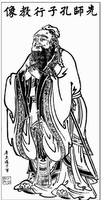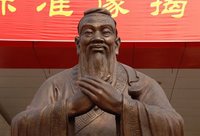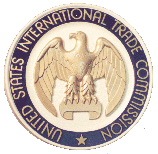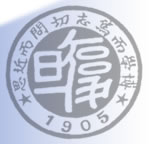China will launch new IP enforcement campaigns (“special actions”) with sunny names for 2006-2010, the State Intellectual Property Office (SIPO) announced on August 22, see here.
Testing 1, 2, 3, I mean Sunlight 1, 2, 3 …
- Sunlight 1: Action held in the first quarter of 2006 for a purpose of creating a sound market environment
- Sunlight 2: Action, in the summer, for the sake of the young generation, to check those legal audio-video shops who are, however, also engaged in wholesaling or selling pirate products
- Sunlight 3: Action, planned to start from October to the end of 2006, focusing on the protection of the Chinese movie industry.
And then there is Blue Sky:
“[f]or carrying out the Provisions on Exhibition IPR Methods, the Ministry of Commerce, the General Administration of Customs, the Industrial and Commercial Administration, Copyright Administration, SIPO, China Trade Promotion Commission and the National IPR Office will jointly sponsor a one-year long special action entitled “Blue-Sky” to regulate exhibition IPR protection. The action focuses on publicity of the copyright, trademark and patent rights and using the success in tackling some serious cases to achieve a big breakthrough and make overall progress in this field.“
And two extra campaign days:
“March 15 is Consumer’s Day in China, and April 26 is World IP Day. Campaigns will be organized around these two dates throughout China to examine IPR and carry out wide-scale law enforcement movements.“
What is the background and significance of these campaigns?
As a communist country the People’s Republic of China has never been a stranger to political campaigns. Recently China is using legal campaigns to redirect the masses of IP infringers back on the right path. [a] In Augustus 2004 China launched Operation Spring[1], in November 2005 Operation Mountain Hawk
[2], in January 2005 Operation Mountain Eagle[3] that will be carried on in 2006 as announced in the Action on IPR Protection 2006[4]. In July, 2006 the Ministry of Public Security began July 15, 2006 a 100-day campaign against piracy[5]. These top-down initiated campaigns, draw attention to the case of intellectual property rights protection and enforcement and may educate the public at large. But they are no substitute for enforcement from the ground up. The grass roots administrative authorities and Public Security Bureaus are in the best position to investigate and initiate actions.
[b] China regularly releases statistics with regard to the results of the number of cases uncovered by enforcement bodies at various levels, the number of cases transferred from administrative bodies to public security offices, the number of arrests and prosecution approved by prosecuting authorities and the number of judged and convicted cases made by courts at various levels. Year-on-year growth of arrest warrants and prosecutions are however inconclusive to support China’s alleged progress in enforcement. Take for example the statistics Vice Minister of Commerce Zhang Zhigang released about the procuratorate[6]:
[c] From January to May 2005, the procuratorate departments warranted the arrest of 882 persons involved in the production and selling of fake and shoddy products, up 51.5 percent year on year. “Altogether 844 of them were prosecuted, up 45 percent year on year,” Zhang said.
According to Zhang the procuratorate departments also warranted the arrest of 340 suspects involved in IPR infringement, 58.9 percent more than a year earlier, with 258 of them prosecuted, up 20.6 percent.
There could be several explanations for the year-on-year increase in arrest warrants and prosecutions: it could signify that some of the criminal thresholds have been relaxed and more infringers are eligible for criminal prosecution; the productivity of the PSB has increased or more resources were applied to the PSB; arrest warrants were more easily given and restrictions to prosecute were used less; or the total number of infringements has increased. The growth in seized counterfeit and pirated products at international customs, suggests the latter explanation should be taken into account[7].
[1] Operation Spring, August 2004, the first U.S.-China joint investigative effort (between the US Immigration and Customs Enforcement and MPS), results shut down of a DVD export ring, arresting six people (including Guthrie and Thrush, two Americans. Read the great article The Decline and Fall of Randoph Hobson Guthrie III, by Joshua Davis, Wired Magazine, available at: http://www.wired.com/wired/archive/13.10/guthrie.html) while seizing more than $83,000 in cash and more than 200,000 DVDs.[Back].
[2] Operation Mountain Hawk, November 2005, the Ministry of Public Security (MPS) launched a one-year campaign aimed at more effectively co-ordinating the efforts of local police to accept, investigate and report on the results of intellectual property enforcement work.[Back].
[3] Operation Mountain Eagle, which started in 2005 and continued in 2006, aims to strike at counterfeit trademarks and pirated copyrights. During the operation “Mountain Eagle” of the Ministry of Public Security, the police nationwide cracked more than 1,000 cases involving IPR infringement valued at over 860 million yuan, and detained more than 2,600 suspects.[Back]
[4] Action Plan 2006 on IPR protection, Law Enforcement Plans II, (I) article 1 (1), http://english.people.com.cn/200604/30/eng20060430_262334.html.[Back]
[5] 100-day campaign against piracy started July 15, 2006, by the Ministry of Public Security, MPS to severely fight against piracy, source: Xinhua, published on ipr.gov, August 22, 2006, available at:
http://www.ipr.gov.cn/ipr/en/info/Article.jsp?a_no=12390&col_no=99&dir=200608.[Back]
[6] Vice Minister of Commerce Zhang Zhigang, China penalizes more IPR-related crimes, June 28, 2005, available at: http://us.china-embassy.org/eng/xw/t201585.htm.[Back]
[7] Of course the same could be said from a difference in seizures at international customs offices. So the assumption is that the procedure and technology to seize infringed goods has remained equal.[Back]








